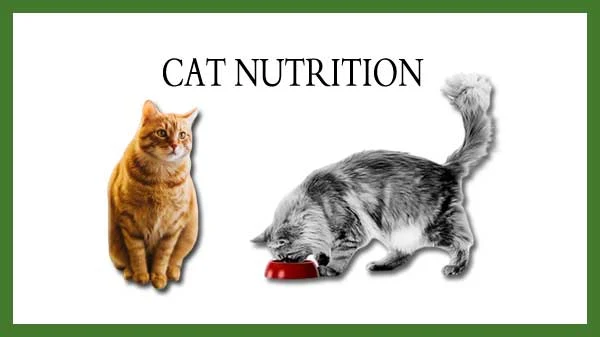 |
| Cat Nutrition |
Understanding Cat Nutrition
Cats need to take high-dose, high-protein, and high-fat cat foods every day. This cat food is specially formulated to contain the right amount of moisture to help your cat meet its metabolic needs.
Cats Require a High-Protein Diet
Cats require strong and well-developed muscles in order for
them to carry on their natural predatory instincts – jumping off high places,
leaping over walls and other vertical structures, and pouncing on anything that
moves that catches their attention. Muscle development requires lots of
high-quality protein that come from animal sources.
Although certain plants are excellent meat protein
substitute, such as legumes, they lack a certain kind of protein that is
important in the normal development of the cat’s cardiovascular system as well
as the optimal functioning of the cat’s skeletal muscles, central nervous
system, and retina. Taurine is such an important animal-based protein that cats
that are ill with cardiovascular problems heal a lot faster when given animal-based
high protein diets.
Taurine’s anti-oxidant properties as well as its function in
osmoregulation and stabilization of the cellular membrane, bring about an
overall healthier and better-developed cat. Read also: Raw Cat Food and Homemade Cat Food.
Cats Require Fatty Acids especially the Essential Ones
Fatty acids are essential nutrients for ensuring and
maintaining the integrity of the cell membrane. When fatty acids are abundant,
cells are able to function properly as they are more protected from the
different tissue-level processes that can bring about cell death.
Omega 3 and omega 6 fatty acids are known to reduce the
incidence of inflammation as well as affect many other important processes in
cells. The net effect on cats is a healthier skin and coat as well as a
better-optimized urinary system.
Feeding your cat with food that has a high content of
essential fatty acids ensures that your cat has a better mood, a better-rounded
disposition, and lesser incidence of skin inflammation.
Cats Need Water
Although cats rarely like water, they do need to drink.
However, because cats have a very weak, almost negligible thirst drive, they
need cat food that has sufficient amounts of moisture in it. Water is need for
a variety of cellular processes primarily in maintaining a stable body
temperature. Maintaining this equilibrium is crucial for the optimum
functioning of the individual cells.
Cats Need Carbohydrates, but in Lesser Amounts
Carbohydrates are the primary source of energy by providing
fuel for the cells to burn to carry out their many processes. However, unlike
dogs, cats only require a significantly smaller amount of carbohydrates in her
diet because she lacks certain chemicals that are needed to effectively break
down the carbohydrate molecules into its component parts. Carbohydrates in cat
diets are more geared towards maintaining a healthy digestive system. Because
many of these big molecules are not absorbed into the bloodstream, what happens
is that they serve as a broom that sweeps the walls of the intestines so that
it remains free of gastrointestinal debris.
Cats Need Vitamins and Minerals
Since many of the vitamins and minerals required by the cat
cannot be synthesized in the cat’s body, these should be included in their
diet. Vitamins are needed to speed up the various chemical processes inside the
cat’s body while minerals are needed for various structural changes such as
bone and teeth development. Minerals are also needed for a host of other
metabolic processes as well as the maintenance of fluid and electrolyte
balance. Read also: Can Cats Eat Dog Food? This is the answer.
Cats require a diet that has all the correct amounts of
macro- and micronutrients for cat growth and development. By feeding them
high-quality cat food that already has all these essential nutrients, dietary
supplementation may no longer be necessary. For more details and information about Cat nutrition, click here.
